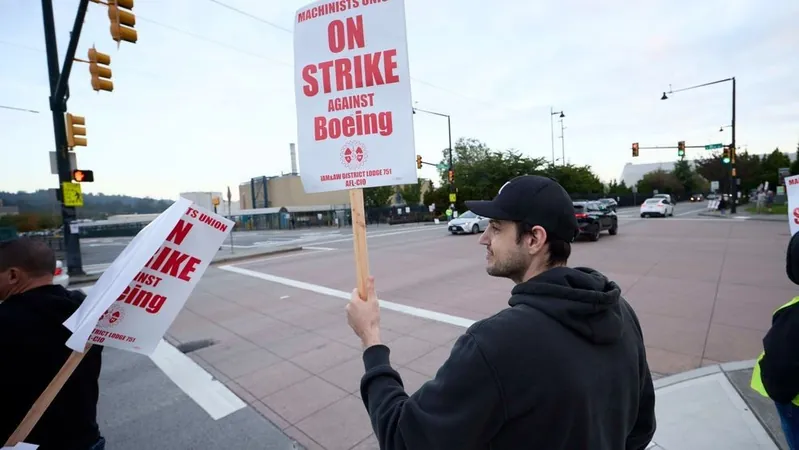
Boeing Hit Hard as Aerospace Engineers Union Denies Furlough Request Amid Ongoing Strike
2024-09-21
In a significant standoff, the Society of Professional Engineering Employees in Aerospace (SPEEA), representing aerospace engineers at Boeing, has decisively rejected the company's request to furlough workers as part of cost-saving measures during the current strike. SPEEA's board voted unanimously against the voluntary furloughs, asserting the need to uphold the established provisions of their collective bargaining agreements.
SPEEA President John Dimas expressed the union's stance, stating, “We don’t see any compelling reason to change the provisions of our collective bargaining agreement.” He emphasized the binding nature of their contracts, which contain explicit prohibitions against furloughs during this period.
Boeing's Chief Financial Officer, Brian West, noted that the company is focusing on cash conservation amid tense negotiations with the International Association of Machinists (IAM) District 751. In an interesting turn, the company has mandated non-union employees take an unpaid week off every month to manage costs during the strike.
This strike came after 96% of IAM members voted against the new contract offer, leading to a complete halt in operations at Boeing's production facilities in the Pacific Northwest. The level of disruption underscores the gravity of the situation as negotiations appear to be stalling, with communication continuing between IAM and Boeing’s leadership.
IAM 751 President Jon Holden commented on the chaotic early phase of the strike, emphasizing the commitment of the union members. “They are fighting for reasonable things,” he said, pointing out concerns over health insurance and wages. The union feels that the current contract does not reflect their needs or the true value of their work.
Industry analyst Scott Hamilton offered a grim forecast, estimating that the strike could be costing Boeing approximately $100 million per day. He referenced the 2008 strike, during which Boeing took two years to rebound, noting that the company is currently in a more vulnerable position without the same robust infrastructure.
This strike also marks a significant test for Boeing's new CEO, Kelly Ortberg, who assumed leadership earlier this summer amid ongoing quality control issues connected to a mid-air incident earlier in the year. Critics have expressed disappointment in Ortberg's lack of decisive action thus far, with Hamilton commenting, “It’s really disappointing that Ortberg isn’t stepping in and saying ‘We’ve got to get this thing done.'”
As the strike drags on, picketing workers remain resolute outside Boeing's facilities in the Pacific Northwest. IAM member Gabby Politsch voiced her commitment to the cause: “If this goes on for a month, I’m going to be on the picket line fighting for something better. If it goes on for two months, three months, we’re going to be out here as long as it takes to get a good contract.”
With tensions high and negotiations stalling, the aerospace giant faces unprecedented challenges while its workers stand firm in their demand for fairness and respect in their labor agreements.




 Brasil (PT)
Brasil (PT)
 Canada (EN)
Canada (EN)
 Chile (ES)
Chile (ES)
 España (ES)
España (ES)
 France (FR)
France (FR)
 Hong Kong (EN)
Hong Kong (EN)
 Italia (IT)
Italia (IT)
 日本 (JA)
日本 (JA)
 Magyarország (HU)
Magyarország (HU)
 Norge (NO)
Norge (NO)
 Polska (PL)
Polska (PL)
 Schweiz (DE)
Schweiz (DE)
 Singapore (EN)
Singapore (EN)
 Sverige (SV)
Sverige (SV)
 Suomi (FI)
Suomi (FI)
 Türkiye (TR)
Türkiye (TR)